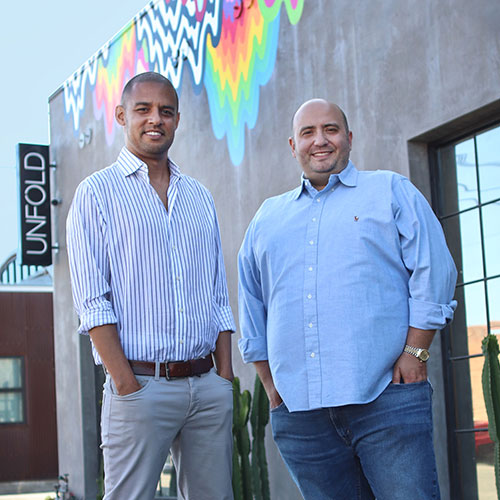Greatness Doesn't Start With Work/Life Balance
It starts with hard work and a passion for the business
What does it take to be great? When I think about a professional athlete or someone at the top of their game, concepts like hard work, sacrifice and delayed gratification come to mind.
What doesn’t is a common phrase we all value so much: “work/life balance.”
Sorry if this is contrary to what most agency recruiters tell you, but the whole work/life balance thing is something of a myth—at least for most of us, most of the time. The truth is, it takes work, determination and passion to be great in this industry, just like it does in sports. We had to work hard to get where we are, especially when we were just starting out. I don’t want to be second best, and having this attitude is what drove me to succeed.
We think about work/life balance when an applicant asks us during a job interview how much vacation time they’ll get. We reflect on Unfold’s early days when there were only the two of us and we were working 16-hour days—maybe more. We’d go to conferences—and work. And go out with clients and check emails—and work. It was constant multitasking.
We would have loved to have parents who could put us where we are now. We’d have happily taken a trust fund. But unfortunately, that wasn’t an option. We chose to play in a really competitive space. To break into it and prove ourselves among established agencies, we had to work at least twice as hard as them. We showed clients that Unfold could do it better, faster and for less money.
And now, we want to attract team members who have that same kind of … hunger. Mind you, we are not exploitative—we don’t haze our employees—but we expect them to prove their worth to the company. This industry is challenging, and when some candidate with zero to very little experience shuffles in and demands a work/life balance, it’s hard to see beyond that level of entitlement. “Thank you, next!”
People say millennials won’t work for you if they can’t have a work/life balance, but we beg to differ. Sure, some have no interest in working hard and expect things to be given to them, but we weed out the bad eggs and identify those who are just as passionate about work as we are. Those are the keepers.
Think of it as the Wonka test: After the undeserving are cleared from the field, the Charlies naturally emerge. And when they do, they work hard, get paid and stick around for a long time. And these employees do get those paid vacations—and holidays, and sick days—and we encourage them to actually use them! We want our employees to have a life because they have earned it, and time away gives them a lucidity that adds context to their work here. It’s refreshing, and getting out of the same behavior makes their work better.
Our culture has developed into a kind of a second-family atmosphere; the office has a washer and dryer, high-end chef appliances and showers. Our first office was in a house, and being able to cook and do our laundry at work was significant and the closest thing to a Google perk we had, so we recreated these things in our office.
We have a reputation for being tough—but to be honest, no one here is working 48 hours straight. We work hard, but we work smart, so people get their weekends. We created our workflow process early on and have a 24-hour workflow because we have a team in Jakarta that can pick up where Los Angeles leaves off.
In 2018, we worked on over 50 of the top 100 films, because our team defines themselves by the work they do, not by a vacation policy.



 Events
Events